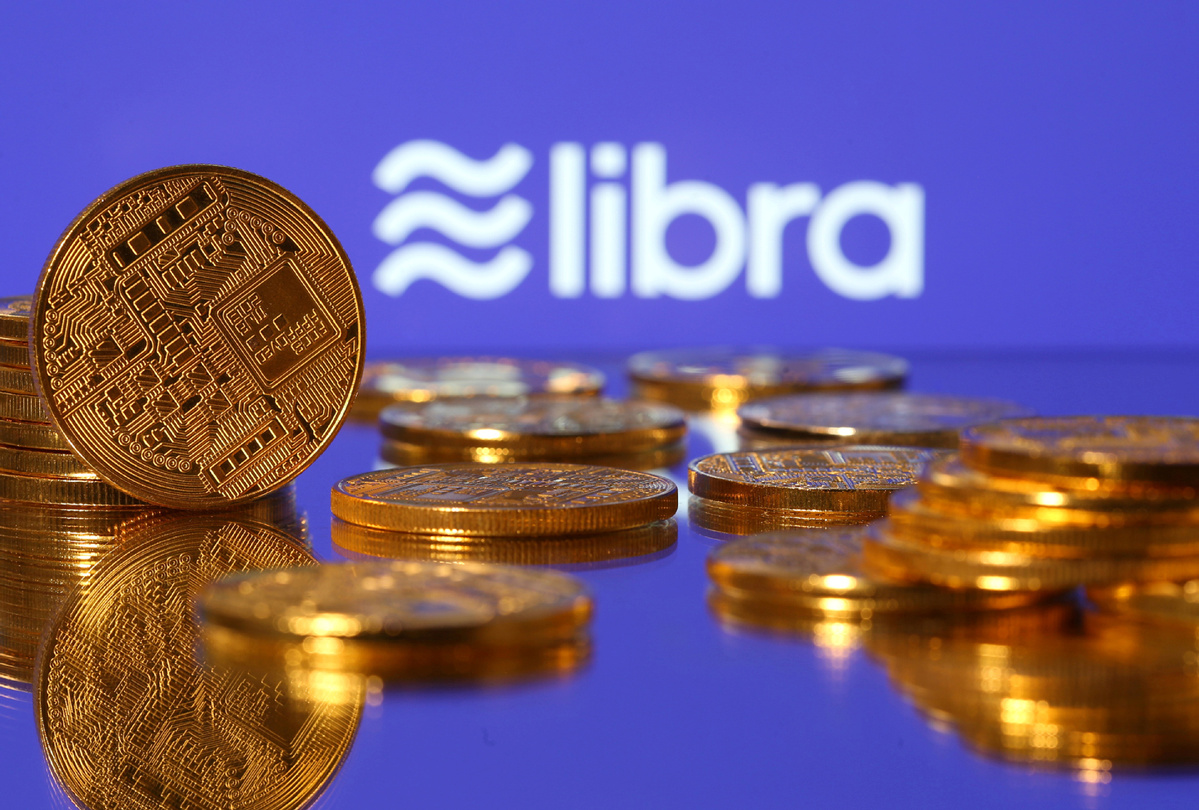Beware the designs of Libra
By Sun Yunchuan | China Daily | Updated: 2019-07-30 11:28

Facebook has released a white paper on its Libra cryptocurrency project, saying its goal is to issue a "stable currency built on a secure and stable open-source blockchain, backed by a reserve of real assets, and governed by an independent association", which sparked heated discussions worldwide, especially in the political and financial circles.
US government organs, including the House of Representatives, and G7 finance ministers and central bankers have strongly opposed the program, fearing Libra could pose a challenge to sovereign currencies, the US dollar included. Some experts and scholars, however, argued Libra could create new opportunities for the traditional financial industry.
Irrespective of whether or not Libra is issued next year, as Facebook said, the release of the white paper is an audacious attempt to introduce a cryptocurrency with the aim of breaking the traditional financial and currency systems. Once launched, Libra, thanks to Facebook's more than 2 billion-user base and strong industry consortium, could greatly reduce the time and cost of cross-border banking transactions including international payments and settlements, and foreign currency exchanges-and set the restructuring of the global financial system in motion. It could also signal the end of other cryptocurrencies including bitcoin.
The introduction of Libra could lead to the misuse of the users' transaction data and therefore infringe their right to privacy and compromise their safety. It could also increase crimes such as money laundering, tax evasion and drug trafficking, and even imperil the security of the global financial system. And if the Libra were to lose its credits, it could create a financial tsunami which would devastate the market.
David Marcus, head of Facebook's cryptocurrency project, claimed Libra will not compete with sovereign currencies, including the US dollar, or participate in currency policymaking. But as a "standard currency" with no respect for national borders, Libra could become a hard currency and deal a strong blow to sovereign currencies, leaving the foreign exchange mechanism in utter chaos.
If people use real assets pervasively and directly link Libra for exchanges, Libra will become a great threat to sovereign currencies. And if not stopped from achieving its goals, Calibra, a Facebook subsidiary designed to issue Libra, could become a de facto currency issuing body, making it very difficult for countries to implement currency policies and rendering the US Federal Reserve and other countries' central banks almost redundant. Even the dollar could see the end of its global dominance, which is what the US is really worried about.
Yet despite the US authorities' strong vocal opposition, they could end up secretly supporting Libra because it is "Made in America". The alleged strict US regulation against such virtual currencies may, in essence, be an effort to reduce relevant parties' concerns in the US. As such, Facebook could actually go ahead and turn Libra into a hard currency.
During the US Senate hearing on July 17, Marcus stressed that Libra, as a means of payment, will compete with WeChat and Alipay, which have become dominant players in China's mobile payment sector. Indeed, it is possible that Libra, by virtue of Facebook's massive social network and the advantages international payment giants such as Visa, MasterCard and Paypal enjoy, would pose a serious threat to the two Chinese companies' bid to go global.
Marcus had another reason to include WeChat and Alipay in the Senate hearing. His aim was to win the US government's support on the pretext of taking on Chinese companies amid Sino-US trade disputes, so Facebook could realize its presumptuous ambition to make Libra a global negotiable instrument and dominate the global financial market.
Furthermore, the development of cryptocurrencies could be aimed at thwarting the internationalization of the yuan. To ensure Libra's stability, the US dollar and securities are bound to have the largest share in Libra's basket of assets given that the dollar is much more stable than the yuan, or the euro or yen. Therefore, the widespread application of Libra would strengthen the dollar's status more than that of any other currency. In fact, by controlling Libra, the US administration could even dominate the currency and financial markets.
To ensure the yuan's internationalization process is not threatened by the rising wave of cryptocurrencies, China should take measures to widen the reach of its currency, and introduce a global cryptocurrency centered on the yuan, if needed.
The author is a professor at the International Institute of Big Data in Finance and Business School, Beijing Normal University. The views don't necessarily represent those of China Daily.
























